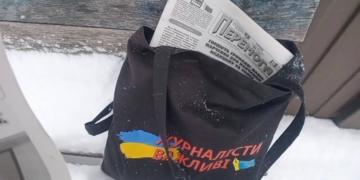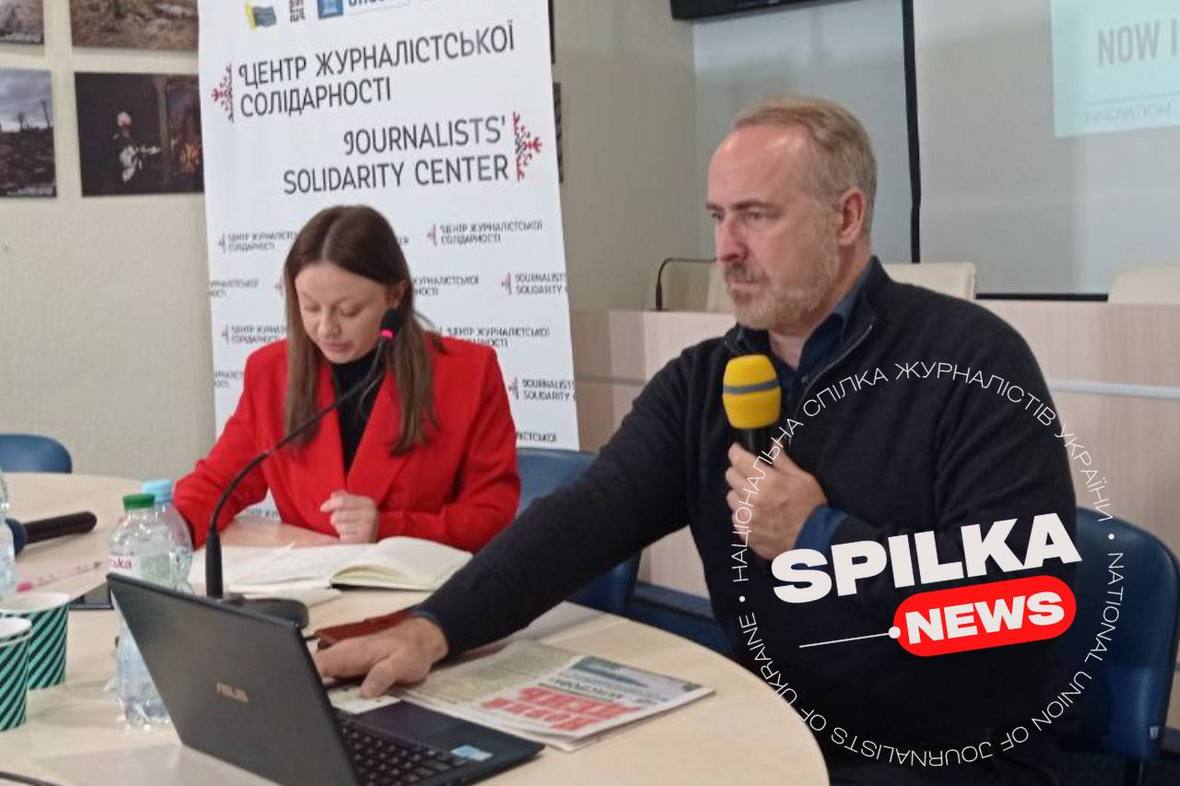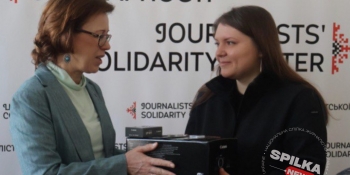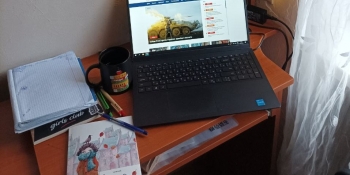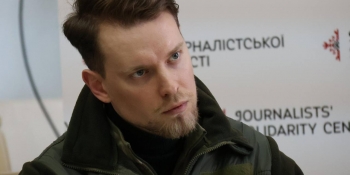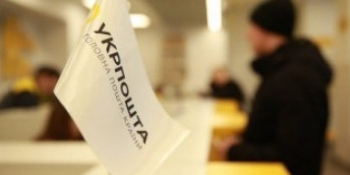Ukraine is winning the information war, but Ukrainian journalists should better master visual investigations. One of the world’s best specialists in news media development, Juan Senor, the head of the INNOVATION Media Consulting company, is convinced of this. His master class was held today at the site of the Kyiv Journalist Solidarity Center of the National Union of Journalists of Ukraine (NUJU) on the initiative of the Ukrainian Association of Media Business.
The topic of the expert’s speech called Why only Journalism will Save Journalism – a Look through the Prism of the Latest Global Trends in the Media at How to Make the Situation Work for You in Times of War.
Mr. Senor noted that he often visited Ukraine and observed “huge flows of free press.” This time he represents the World News Association and the International Federation of Journalists. These organizations asked to convey a key message to Ukrainian journalists: “Colleagues from different countries are in solidarity with you! You can count on their support!” Media workers from different countries appreciate not only the fact that Ukrainian media companies continue to provide the audience with important daily information, but also that they create entertaining content so that people can take a break and have some rest.”
“Now, the war is being waged on all fronts: military, economic, diplomatic, and informational. Ukraine will win the information war, because Ukraine’s communication looks fantastic globally. But you need to master the tool of visual investigations. It is very important. When a person is asked why he reads the news of this or that company, they answer: because this company uses fact-checking, its information is verified. People also read information on social networks, but they need its verification. So, you have to have a brand that will be trusted,” said Juan Senor.
Besides, as the expert emphasized, 85% of the information we perceive is visual. So, visualization has become one of the most compelling ways to tell stories.
“It was like that during the covid epidemic, and it is like that now, during the war. For example, when you show people Bucha before and after the occupation, you use satellite images, that is, you can illustrate information in a much larger number of dimensions than if it were presented in text,” the expert noted.
In his opinion, now is a favorable time for Ukraine to develop good media brands.
“Mass media companies, which today are born as a brand and demonstrate quality journalism, form a strong connection with their audience. People who are interested in you now, when you cover complex news events, will stay with you forever. This applies not only to, for example, the Polish Gazeta Wyborcza [which appeared in the difficult times of the late 1980s, when the Poles were fighting for democracy – ed.], but also the Kherson Novyi Den. Indeed, after the de-occupation of Kherson, the first publication that came into contact with its residents was Novyi Den. When people are trying to survive, not only is it important to provide them with news, but also with entertainment content, such as cooking, for example, as Novyi Den does. Great nations are born during the war for independence,” said Juan Senor.
He also added that “good journalism is good business. And good business is good journalism.”
“Ukraine is at war, there is huge destruction, but media publishers or editors must continue to develop their media as a business: to provide their audience with the unique content they need and at the same time use all opportunities to get income,” said Juan Senor.
In his welcoming speech, Sergiy Tomilenko, the President of the NUJU, told guests about the systematic financial support provided by the NUJU for print media in the de-occupied and front-line regions of Ukraine. Such support has already made it possible to revive 15 local newspapers, which, having received the assistance to publish their first issues, are gradually getting back on their feet and going further, independently raising funds for this and using market mechanisms for financing their editorial offices.
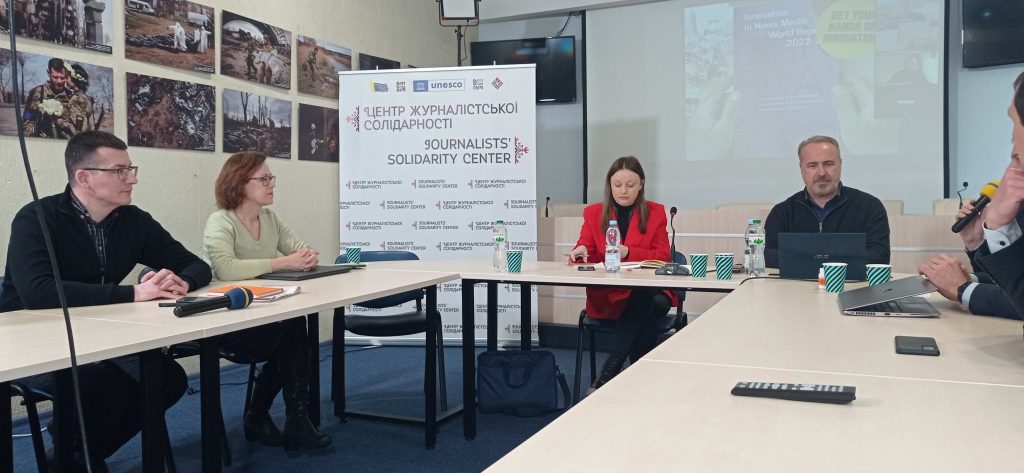
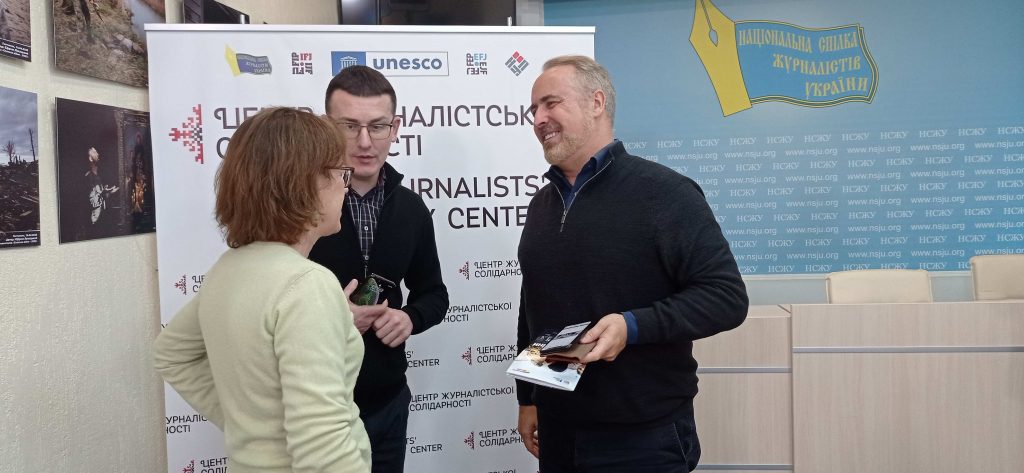
NUJU information service





